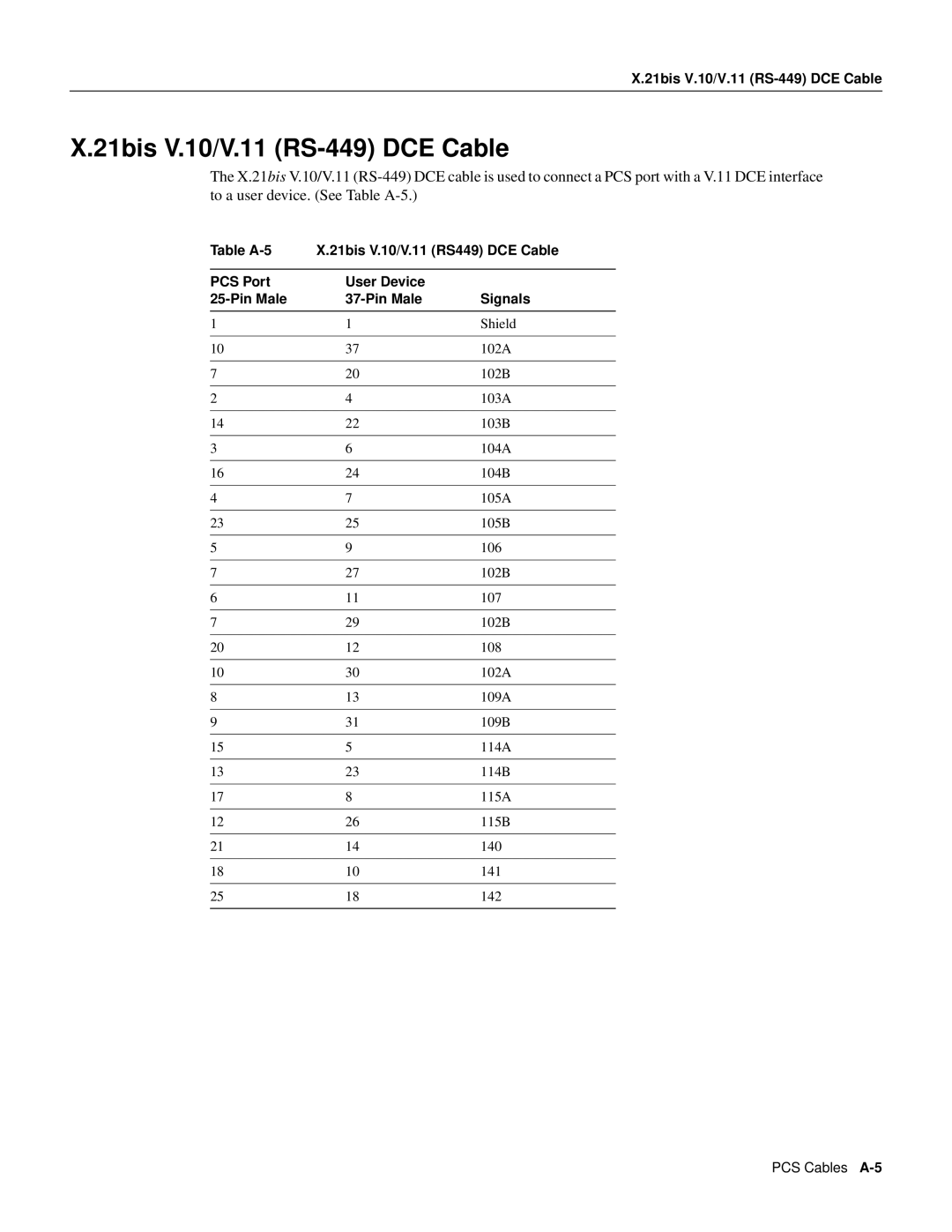PCS Cable specifications
Cisco Systems is a leading name in the world of networking and communications technology, and one of its notable products is the PCS (Personal Communications Service) cable. This advanced solution is primarily designed to enhance connectivity and improve communication efficiency within various environments, including enterprise settings and personal use.One of the critical features of the Cisco PCS cable is its robustness. These cables are built to withstand harsh conditions and maintain superior performance over extended periods. They are designed with high-quality materials that ensure reliability and durability while minimizing interference and signal degradation. This makes them ideal for environments where signal clarity and reliability are paramount.
Another significant characteristic of the Cisco PCS cable is its versatility. It supports various applications, making it suitable for different types of communication technologies, including voice, data, and video transmission. This capability allows organizations to utilize a single cable type for multiple functions, thereby reducing complexity in network infrastructure.
In terms of technology, the Cisco PCS cable utilizes advanced connectivity standards. It is compatible with various Cisco networking devices, ensuring seamless integration into existing infrastructure. The cables support high data transfer rates, facilitating fast and efficient communication in both small-scale and large-scale networks.
Furthermore, the Cisco PCS cable features enhanced security measures. It is designed to protect against data breaches and unauthorized access through advanced encryption capabilities. This is crucial as more organizations seek to safeguard sensitive information while maintaining efficient communication.
Ease of installation is another highlight of the Cisco PCS cable. With user-friendly designs, these cables can be quickly and easily installed, minimizing downtime and disruption. Additionally, Cisco provides comprehensive support and documentation to assist users during the installation and configuration process.
Overall, the Cisco Systems PCS cable combines durability, versatility, and advanced technology, making it a valuable asset for modern communication needs. Its ability to support various applications, coupled with high data transfer rates and security features, ensures that organizations can communicate effectively and efficiently. As businesses continue to evolve and expand their communication networks, solutions like the Cisco PCS cable will remain integral to success in the digital age.
